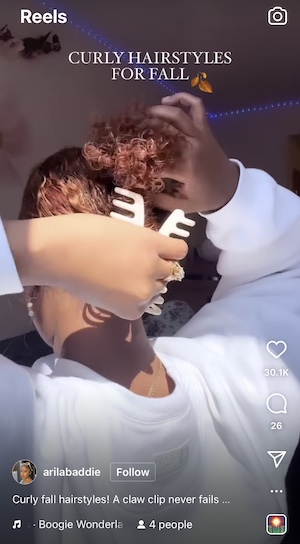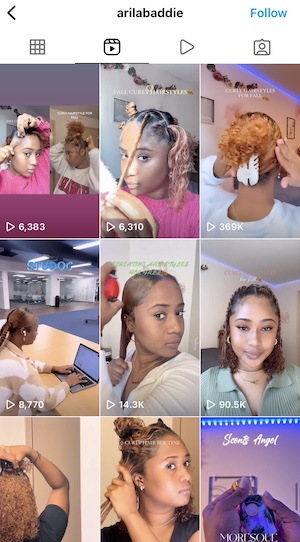Why Always-On Influencer Marketing is So Effective for Brands
Adopting an always-on influencer marketing strategy is key to better campaign ROI. This post explains why influencer campaigns shouldn’t be one-hit...
Want to scale your creator campaigns? Hiring an influencer marketing agency might seem like your next step. Below are eight key questions to ask before you do.


“Is it time for us to hire an influencer marketing agency? Should we take the plunge?”
Running campaigns by yourself is tough. Not to mention super time-consuming. Trust us: we know!
But hiring a full-time influencer specialist is also a big commitment.
So outsourcing your creator campaigns to a team of experts makes sense, right?
Maybe! Still, brands need to do their homework before choosing an agency over a platform.
That’s because what influencer agencies do is far from one-size-fits-all. Maximizing your budget and campaign performance means putting your agency under the microscope.
If you’re on the fence about outsourcing, this post can help. Below we break down questions any agency should answer confidently for their clients.
Skip to Section 👇What Does an Influencer Marketing Agency Do? 8 Key Questions to Ask Your Influencer Agency Prior to Hiring Them |
Hey, good question!
Agencies manage and oversee influencer campaigns on behalf of brands. Think of an agency as a go-between for both parties. The role of an agency is to help brands achieve business goals via creator campaigns.
Keep in mind that influencer agencies vary in terms of how hands-on they are. That said, typical duties include:
Some agencies specialize in running new campaigns from A to Z. Others act as consultancies to help brands optimize their existing influencer strategy.
An agency’s scope of work largely depends on your budget and their area of expertise.
Let’s say you’re torn between agencies.
Or maybe you’re mulling over an influencer platform instead of going the agency route.
Either way, you should go into your creator campaigns with confidence. That means having clear expectations and clarifying key campaign details.
Below are eight questions that brands should ask prior to hiring an agency.
Regardless of your goals, the end result of any influencer campaign is content.
And how many pieces of content your brand earns goes hand in hand with your ROI.
How so? Consider that the more content you earn, the more marketing mileage you get out of your campaigns. This includes:
Brands often end up paying agencies for outreach and campaign prep rather than guaranteed posts. In other words, your budget is spent on time versus content.
Imagine that you have an influencer marketing agency on a $7,500 monthly retainer. On average, you’re receiving a dozen creator posts from them. That means you’re paying $625 per post. That’s not accounting for the cost of fulfillment or shipping, either.
Contrast that with a service that can guarantee a minimum number of posts per month. This way, both your budget and ROI are less up in the air. You know exactly what you’re getting.
Brands shouldn’t sacrifice quality for quantity. Thing is, brands should be able to get both. Although influencer budgets are on the rise, that’s no excuse to splash your cash on “maybe.”
Many influencer agencies tout the size or follower count of their network.
That said, engagement rate is a more valuable metric to keep an eye on. Brands should ideally work with content creators that consistently earn strong engagement.
The keyword here is “consistent.” No agency or platform can guarantee that your brand’s posts are going to go viral. That shouldn’t be your primary goal, either.
Instead, brands should focus on earning meaningful engagement from their target audience.
Most agencies (and some platforms) require a minimum engagement threshold. If you’re thinking about hiring an influencer agency, don’t be shy about asking what theirs is.
We’ve seen firsthand how power-middle and micro-influencers build communities eager to hear about new products. Even though these creators’ audiences are “smaller,” their followers are engaged and enthusiastic.
Think about it. Getting in front of 1,000 product-aware potential customers beats 100,000 random people, right?
Piggybacking on the point above, smaller creators are in high demand for brands. Why, though?
Below is an example of a power-middle Statusphere creator that earns consistent engagement via Reels. Not to mention a 369,000+ loop Reel for one of our brands!


Source: @arilabaddie
Sure, it’s super impressive when agencies work with celebrity influencers. That doesn’t necessarily result in strong campaign performance, though. This is especially true given the price tag required to run a macro-influencer campaign.
There’s a reason why a staggering 90% of marketers prefer to work with smaller creators over celebrities. Consider how many customers a micro-influencer agency could reach for the cost of a single celebrity post.
The takeaway? Take the types of influencers your agency works with into consideration.
No surprises here. You should run your influencer marketing campaigns where your audience hangs out. Whether that’s Instagram or TikTok (or both!) depends on your brand.
Seasoned agencies should also understand the best practices of any given network they’re on. This includes content trends, post requirements and platform-specific guidelines.
The industry is so specialized that dedicated TikTok influencer marketing agencies now exist. Thing is, there are some agencies that still aren’t active on TikTok. Pretty surprising given how so many brands are promoting products on the platform.
Many agencies have “preferred” platforms based on their knowledge and influencer networks. Just make sure that your agency’s specialization aligns with your audience.
Some brands are hesitant to hand over the reins of their campaigns to an agency or platform.
Totally understandable!
Want high-quality content and peace of mind? Be ready to ask your agency about their content review process. For example, a thorough review process ensures that influencers…
Doing all of the above guarantees that your content is on-brand and quality. This likewise highlights the scope of work for a “hands-on” influencer agency.
This might seem like another no-brainer but it’s a critical question.
As the definition of an “influencer” expands to everyday consumers, vetting creators is more important than ever.
For example, is your agency hiring creators with legitimate engagement? A relevant audience? No fake followers?
Assessing individual influencers for these details (and then some!) is a huge time-sink. This illustrates the value of agencies and platforms working with hand-picked influencer networks.
Much like having a rigorous content review process is a plus, the same rules apply to vetting.
Here’s the catch, though: many agencies hire creators via influencer database software. This might not be a big deal granted your agency vets its creators properly.
Vetting is not a quick process, though. You have to be thorough. This illustrates how brands primarily pay influencer agencies for time instead of content.
Marketers today are understandably obsessed with data.
Because campaign data can be eye-opening for brands. For example, influencer reporting can clue you in on the messaging and products that perform best with your social media audience.
The more data you have, the more clearly you can understand your campaign ROI. A few key data points to track include:
If an influencer agency is running your campaigns, consider that they also own your data. Accessing that data comes at a premium in some cases.
Assuming your agency does share performance data, be sure to ask how often they share it. Are campaign reports shared on a regular basis? Can you access campaign data in real time?
Timely data means brands can pivot and optimize their campaigns faster.
In our experience, an influencer gifting campaign can take upwards of 70 hours (and that’s only for ~30 posts). The process of sourcing posts from influencers is a big time commitment, no doubt.
And that’s exactly why brands hire agencies!
A full-service influencer agency should eliminate your most time-consuming tasks. When you’re doing the work in-house, your schedule is dominated by…
Talking these tedious tasks off of your plate translates to countless hours saved. This contributes directly to your campaign ROI and also saves your team’s sanity.
Again, you should be crystal clear on your agency’s scope of work. “Oh, we don’t do that” is not a phrase you want to hear after signing a contract.
Remember that agencies aren’t the only way to outsource your campaigns effectively.
Working with a scalable influencer marketing platform is also an option. In fact, it’s likely your best option if your brand needs hands-off, fully-managed campaigns.
For example, Statusphere executes campaigns from start to finish. Our platform and team do the heavy lifting while our partners monitor their progress and collect content.
The biggest benefits of investing in a scalable platform over an agency include:

Outsourcing your influencer campaigns definitely isn’t a decision to take lightly.
That’s why we encourage brands to ask questions like the ones above. Again, you should approach any marketing push with a sense of confidence. Influencers are no exception.
We find that brands get stuck when they realize that DIY campaigns aren’t going to cut it. If you’re at a crossroads in terms of how to proceed with influencers, Statusphere can help.
Our micro-influencer marketing platform empowers brands to run scalable campaigns without second-guessing. From matchmaking and analytics to fulfillment and beyond, we handle the heavy lifting for you.
Want to learn more about how the process works? Get in touch with one of our consumer-to-consumer marketing experts to see how we can get more people posting about your brand.
Adopting an always-on influencer marketing strategy is key to better campaign ROI. This post explains why influencer campaigns shouldn’t be one-hit...
Picking the right length for an influencer campaign timeline can be tricky. Our guide is here to tell you how long to run a campaign if you want to...
Learn how influencer marketing programs can help drive traffic to your Shopify store and get all the tips for setting up shop on this platform!
Be the first to know about the latest tools, trends and strategies in influencer marketing for brands.